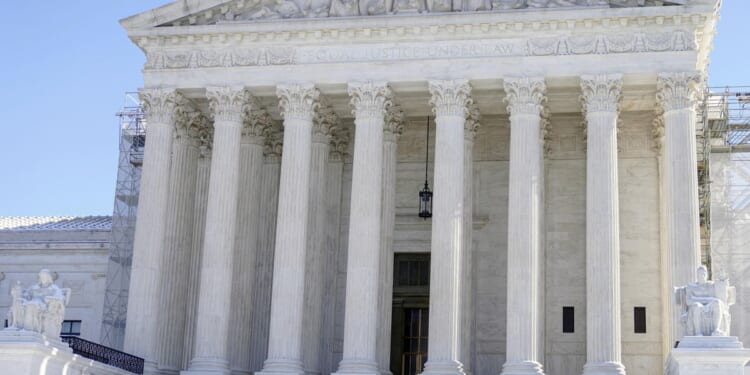
The Biden administration, in a filing on Tuesday, asked the Supreme Court not to halt West Point from considering race in its application process.
U.S. Solicitor General Elizabeth Prelogar, arguing on behalf of the federal government and West Point, told the justices that a “diverse officer corps is necessary for an effective fighting force.”
“For more than forty years, our Nation’s military leaders have determined that a diverse Army officer corps is a national-security imperative and that achieving that diversity requires limited consideration of race in selecting those who join the Army as cadets at the United States Military Academy at West Point,” she wrote.
The filing comes in response to last week’s request from the same group that dismantled affirmative action in college applications, Students for Fair Admissions.
The group asked the justices to prevent West Point from considering race in its admissions process, saying military academies shouldn’t be exempt from the high court’s precedent.
The petition comes as the application deadline at West Point is approaching next week. Students for Fair Admissions says the high court should decide by Jan. 31, the application deadline for West Point’s class of 2028.
“West Point awards preferences to only three races: blacks, Hispanics, and Native Americans,” the group’s filing read. “They cannot use race as a negative, lack an endpoint, stereotype, deploy arbitrary categories, or pursue interests that courts can’t reliably measure.”
According to the filing, West Point has applications from African Americans, Hispanics and Native Americans reviewed by their Diversity Outreach Office, but regional admissions officers review applicants of other races. The academy doesn’t consider Asian and Pacific Islander applicants under the Diversity Outreach Office because they are “overrepresented,” according to the brief.
A lower court denied the request, prompting Students for Fair Admissions to appeal to the 2nd U.S. Circuit Court of Appeals, but before the circuit court ruled on the petition for an injunction halting the academy from considering race, the group asked the Supreme Court to step in. On Monday, the 2nd Circuit denied the request.
The petition was presented to Justice Sonia Sotomayor.
Students for Fair Admissions sued West Point in September. The lawsuit notes the military was desegregated but recent moves have set racial goals for hiring and diversifying the academy’s members.
The lawsuit claims the consideration of race runs afoul of the Fifth Amendment of the Constitution, which requires the federal government to provide equal protection and treatment for all.
If it’s unlawful for civilian schools to use race as an admissions factor, the lawsuit argues, then it should also be unlawful for the military.
When the high court struck down affirmative action policies at private and state schools last summer in its 6-3 ruling, it provided a footnote in the opinion noting military academies were not part of the case.
“No military academy is a party to these cases, however, and none of the courts below addressed the propriety of race-based admissions systems in that context. This opinion also does not address the issue, in light of the potentially distinct interests that military academies may present,” the footnote read.
Advocates for affirmative action had told the justices that diversity in the military was a goal, and that any ruling outlawing the use of race could lead to problems in the armed forces.
Justice Sotomayor noted in her dissent in the 2023 affirmative action ruling that the military had promoted the use of diversity for national security purposes.
“Based on ‘lessons from decades of battlefield experience,’ it has been the ‘longstanding military judgment’ across administrations that racial diversity ‘is essential to achieving a mission-ready’ military and to ensuring the Nation’s ‘ability to compete, deter, and win in today’s increasingly complex global security environment,” she wrote.

